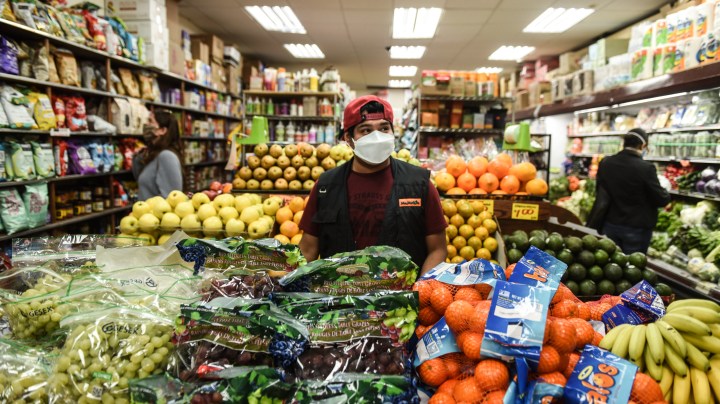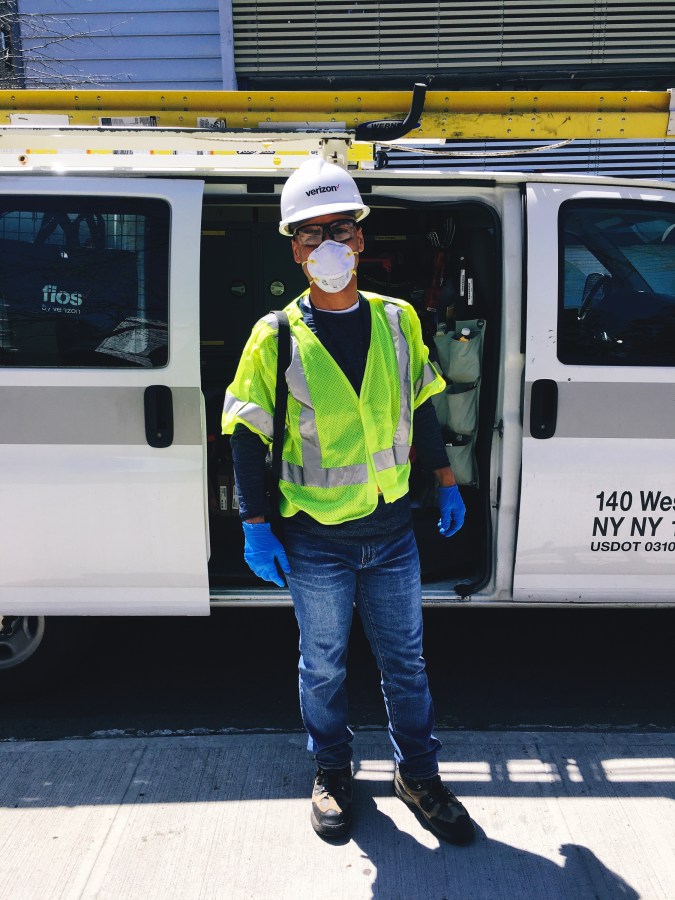This Crowdsourced Collection Will Document the Stories of Essential Workers of Color

A bodega worker restocks produce on April 28, 2020 in the Brooklyn borough in New York City. Photo by Stephanie Keith/Getty Images
The COVID-19 pandemic has exposed socioeconomic inequalities within the United States. For Ayling Zulema Dominguez, the issue hits more than close to home—it’s in her home.
Dominguez has worked from home in the Bronx since March, but her parents have not enjoyed the same privilege. Her mother, a bank teller, and her father, a hardhat wireless service technician, are both considered essential workers and thus have had to continue commuting to work for regular hours.
“It was a strange conflict hearing my parents being thankful [to have jobs] but also scared,” said Dominguez.
According to a Pew Research Center study, nearly half of Hispanics say they or someone in their household has taken a pay cut or lost a job due to the pandemic, compared with 33% of all U.S. adults.

The stark contrast between their situations propelled her to launch a crowdsourced project intended to collect the stories of New York’s frontline workers of color through the pandemic.
“We Been Essential: Chronicles of Black and Brown Essential Workers During the COVID-19 Pandemic” is now open and accepting submissions.

The project calls for submissions in the form of interviews or art of or made by the frontline workers themselves. “I know we all know someone who is a person of color and part of this ‘essential workforce’ not previously regarded as such by society, but always was by us,” Dominguez wrote as she promoted the project.A Reuters poll showed that about 16% of Latinos said they were infected, had contact with someone who was, or knew someone infected in their extended social network, compared to about 9% for white folks.

Because some phrases do not translate across languages, Dominguez hopes that submissions in artistic mediums will capture what cannot be said in words, as well as open a space for free expression.
“Our communities don’t get to delve into art making a lot. It’s seen as frivolous,” she said. “I wanted to give the opportunity to make it important.”
Dominguez, a Latina writer and poet, partnered with Collective Resistance—a group of Black women from The Bronx who work on radicalizing belonging through curated events—to create what she calls a community collected anthology and a potential virtual museum.

More than 70% of New York City’s essential workforce are POC, according to Buzzfeed News.
Dominguez and Collective Resistance hope to find a way to exhibit the stories in the project once it’s safe to gather.
“Coverage has been focused mainly on healthcare workers, which makes sense,” said Dominguez, but it’s not specific enough.

She hopes the project will help raise the voices of a community that, while not ignored in coverage by mass media outlets, has been given a “shallow presentation,” she states.
You can submit to the project via this form. The preliminary deadline is May 16.